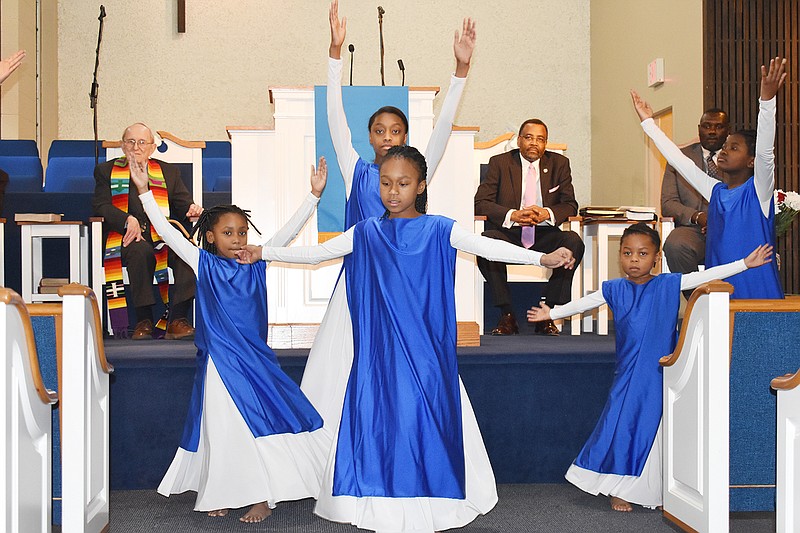Several dozen people attended Sunday's annual Second Baptist Church remembrance of civil rights leader Rev. Martin Luther King, sharing prayer, song and hope for the future.
Carol Smith, a Missouri Tri-Chair for the Poor People's Campaign: A National Call for Moral Revival, gave the featured speech.
The campaign was launched across the nation in 2018, seeking to breathe life into King's campaign to eliminate the 'triple evils' of racism, economic exploitation and militarism, and the new evil in the 21st century of environmental destruction.
Smith said King was embarking on his "Poor People's Campaign" about the time he was shot and killed on April 4, 1968, by James Earl Ray. Ray had escaped from the Missouri State Penitentiary in 1967.
The new Poor People's Campaign, Smith said, is not meant to commemorate King as much as it is to complete his work.
"Nobody likes to be called poor, especially the poor," she said, adding that King called it "economic exploitation."
In Missouri, the top 1 percent of households saw their incomes increase 130 percent from 1979-2012. The rest saw theirs increase just 3 percent, she said.
Work doesn't ensure people escape poverty, as wages have stagnated for low-paid workers.
She said 47 percent of Missouri children are in families that meet the definition for low-income.
Another "evil" that the War on Poverty fights is systemic racism.
Smith said systemic racism can be seen in Missouri prisons, which have the eighth-highest incarceration rate in the nation. African Americans are incarcerated at a rate of four times that of whites, she said.
That stems from injustices in sentencing, she said, using the example of the different punishments for powder cocaine versus crack cocaine.
Smith said her campaign also fights nativism and anti-immigrant rhetoric.
Illegal border crossings in 2017 were at a 15-year low, after reaching their peak in the 1990s, she said.
"We are asked to believe that there are thousands of suspected terrorists crossing our southern border, yet during the first six months of fiscal year 2018, U.S. Customs and Border Protection only stopped six - six! - suspected terrorists on our southern border," she said.
"Immigrants were and are the engine that built this country," she said, "whether they came here against their own will or not."
The campaign has added another "evil" to the current campaign: environmental devastation.
A retired United Way working, Smith also is the founding board president for the Heartland Center for Jobs and Freedom, which launched in 2017 to advocate for the legal rights of low-wage workers and their families.
The center helps working families stop evictions and holds corporations accountable for wage theft, discrimination and consumer fraud.
In 1985, Smith was a founding board member of the Missouri Rural Crisis Center, which advocates for sustainable family farms, a high-quality, affordable food supply, and healthy, vital rural communities.
Also at the ceremony, Second Baptist Pastor Cornell Sudduth presented James Figueroa-Robnett Jr. with the Drug Major for Justice Award.
Sudduth said Robnett worked to enact change at his high school, and has worked for social justice since, he said.
"It's never about one person, but about us working together," Robnett said after accepting the award.

